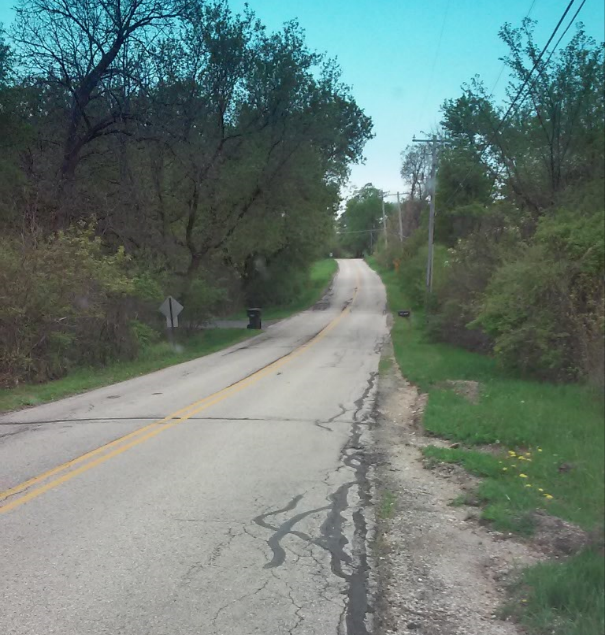Is your SCADA System showing signs of neglect? Water and Wastewater Utilities depend on their Supervisory Control and Data Acquisition (SCADA) Systems to operate, monitor, alarm and report on the critical processes that their municipality's residents take for granted. But are you taking your SCADA System for granted too?
The average American household uses 300 gallons of water per day at home. With summer fast approaching, the time for swimming pools and sprinkler systems is almost here. Warmer months can lead to significantly higher water usage, meaning that water conservation is increasingly important!
Per the National Weather Service, April 2017 was the ninth wettest April on record for the Chicagoland area. This much rain will always reveal urban flooding issues that face our municipalities, but it's not just major flooding events that are an issue. As the economy rebounds, many communities are experiencing significant increases in redevelopment activity. L
Rain gardens are typically depressed garden beds where rain accumulates and slowly soaks into the ground. By directing downspouts to rain gardens, we can reduce the amount of runoff that reaches the street, then the storm sewer, and ultimately erodes the banks of our local creeks and lakes.
Some water utilities in Wisconsin have had trouble with the PSC over water meter replacements. Water utilities do not need PSC construction authorization for routine meter repair or replacement. So, what is non-routine?
The School District of South Milwaukee hired Ruekert & Mielke, Inc. (R/M) to review an ongoing drainage problem on their high school football field. The field became saturated when it rained and wet conditions made it difficult to maintain the natural grass causing field activities to be delayed or moved elsewhere. Learn how R/M helped them get back on the field.
"Storm Water" often refers to water quality impacts from rain or snow melt, but not necessarily quantity or flooding issues. But it's not so easy to separate the quality from quantity issues from a practical, on-the-ground perspective.
Prior to the first Earth Day in 1970, regulations to protect our air, water, and land simply did not exist. It took one Wisconsin native, Gaylord Nelson, to start the conversation of how to put environmental protection on the national agenda. He accomplished this incredible task by inventing Earth Day, a day to celebrate our earth's natural resources and recognize the importance of protecting them.
The Wisconsin Legislature is considering a bill that will provide an incentive for school districts to approve a 10-year capital improvement plan. The bill, as currently proposed, will create new language under State Statutes 20.255 - Appropriations and Budget Management for the Wisconsin Department of Public Instruction (DPI) and new language under State Statutes 120.137 - Long-Term Capital Improvement Trust Fund.
Bicycles are actually the world's most widely used transport vehicle, outnumbering automobiles almost two to one. However, the U.S. is a major exception to biking's popularity around the world with less than one percent of trips made in the U.S. done by bicycle.
Building in wetlands is usually not an engineer's or contractor's first choice, but sometimes it is unavoidable. State, local and federal agencies may have permit authority, and the application process usually requires a lot of site-specific information. Read these tips to remember when applying for wetland permits.
Storm water ponds can be designed and maintained as positive features in a neighborhood or business park. Consider these tips for maintaining these water quality features as natural ponds to enhance habitat and provide viewing opportunities for bicyclists, walkers, and residents.
The Village of Fox Point obtained an Urban Nonpoint Source Planning Grant from the Wisconsin DNR to update the Village's storm water management plan, emphasizing water quality modeling, updating ordinances, and evaluating Milwaukee River TMDL requirements. The Village selected Ruekert & Mielke, Inc. (R/M) in part due to their comprehensive storm water experience and capabilities in order to fully utilize the grant funding.
Various grant opportunities are available throughout the year for planning and implementation of coordinated, strategic measures to minimize the impacts of nutrients on our water resources and water bodies.
Geographic Information Systems (GIS) can be your one stop for filing and retrieval of your MS4 and TMDL records. Permit compliance activities can be simplified by tracking multiple project sites and related records through GIS.
The Wisconsin Department of Natural Resources (WDNR) has restructured the municipal storm water (MS4) permit program. Discussions between the U.S. Environmental Protection Agency (EPA) and WDNR in 2016 led to a goal of 35 MS4 audits per year out of 245 MS4 permitted communities statewide. This goal will result in most communities being audited during the 5-year MS4 permit term. Notification of an upcoming audit is typically given shortly before WDNR staff plan on visiting (approximately 2 weeks).
Keeping up to date with municipal road ratings and pavement management requires both organization and experience. The Town of Waukesha has utilized the services of Ruekert & Mielke, Inc. (R/M) for their pavement management needs, recognizing R/M's tested approach to providing quality pavement management programs to communities in Wisconsin and Illinois.
Backyard composting is a great way for municipalities to become more environmentally conscious while saving money and decreasing landfill waste. In most communities, composting is performed at a municipal yard which requires residents to expend fuel and time to haul their materials to the site.
Conducting road ratings is only one piece of the puzzle. Having a pavement management program in place can save you time, money, and stress when it comes to evaluating and maintaining your roads.




















